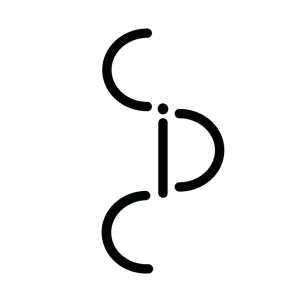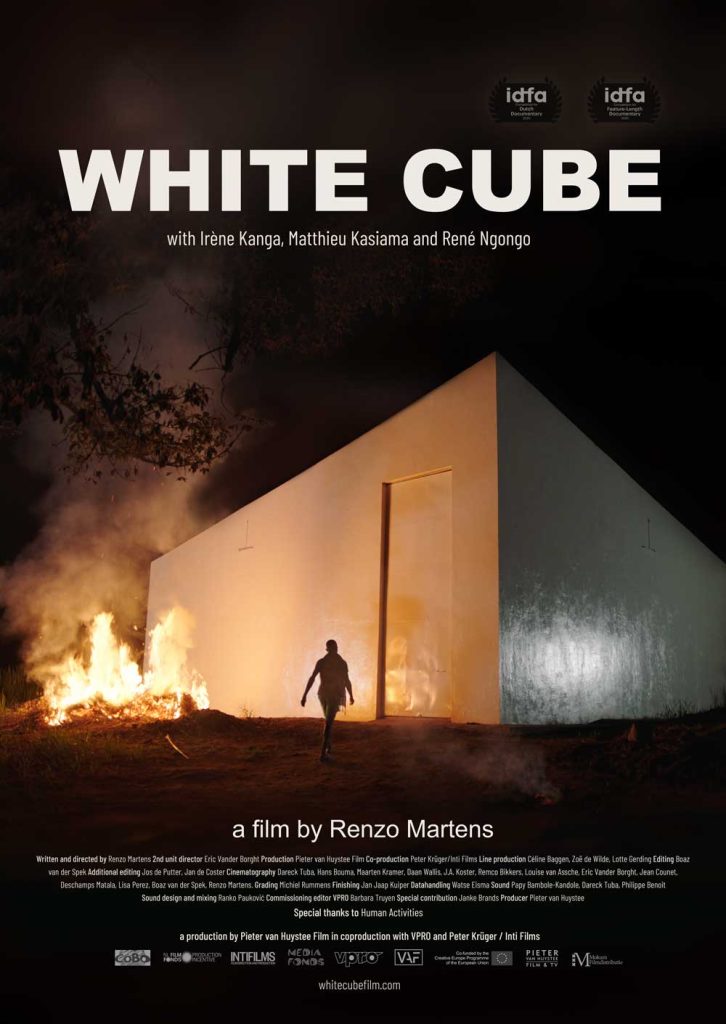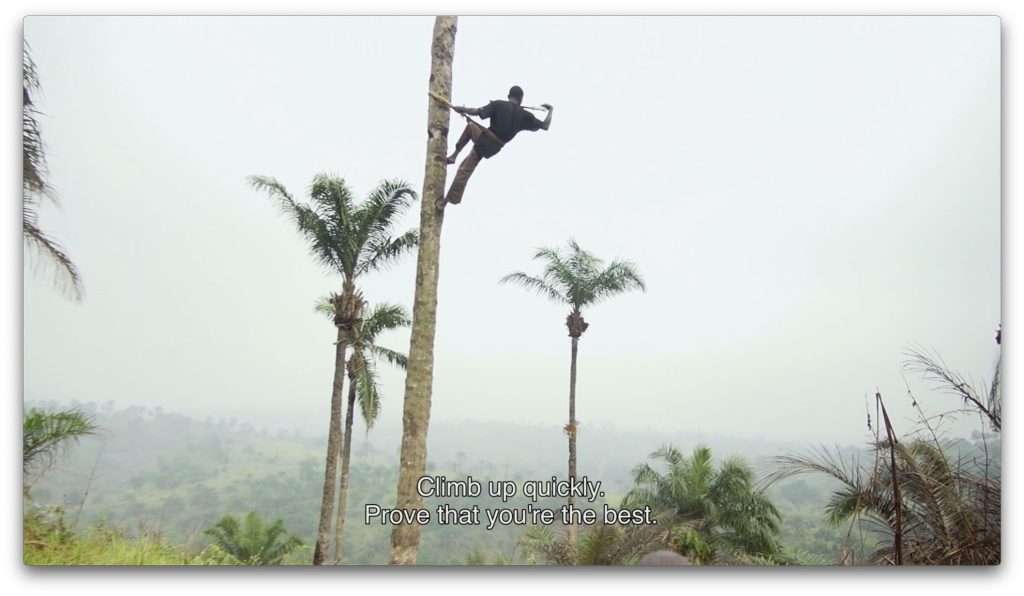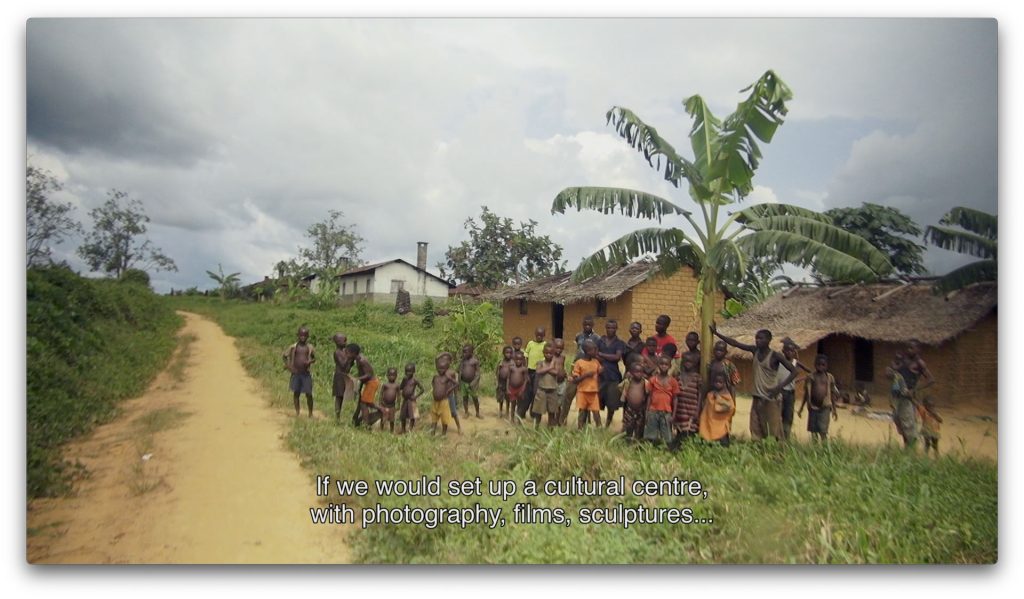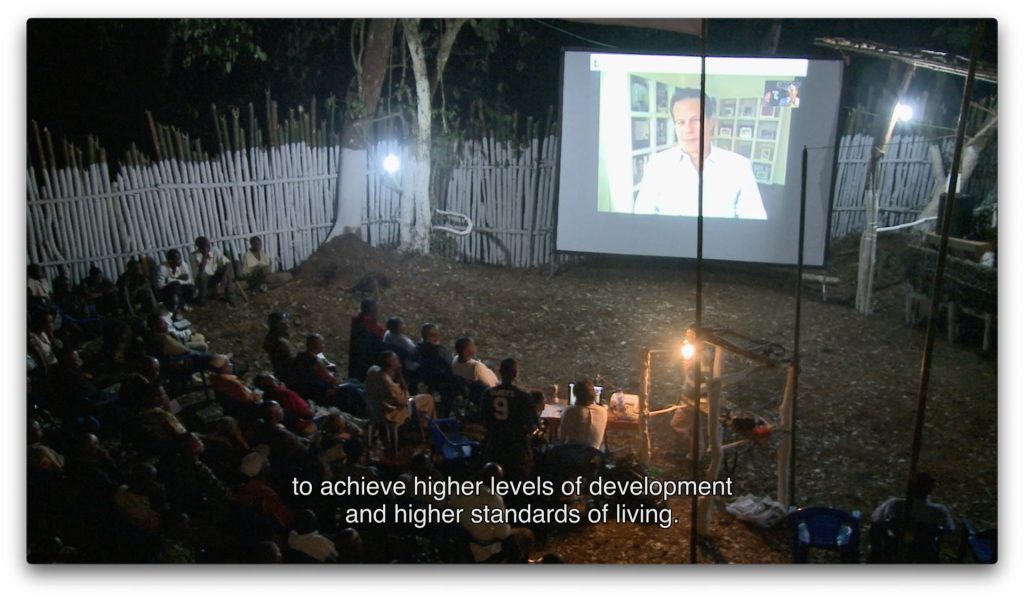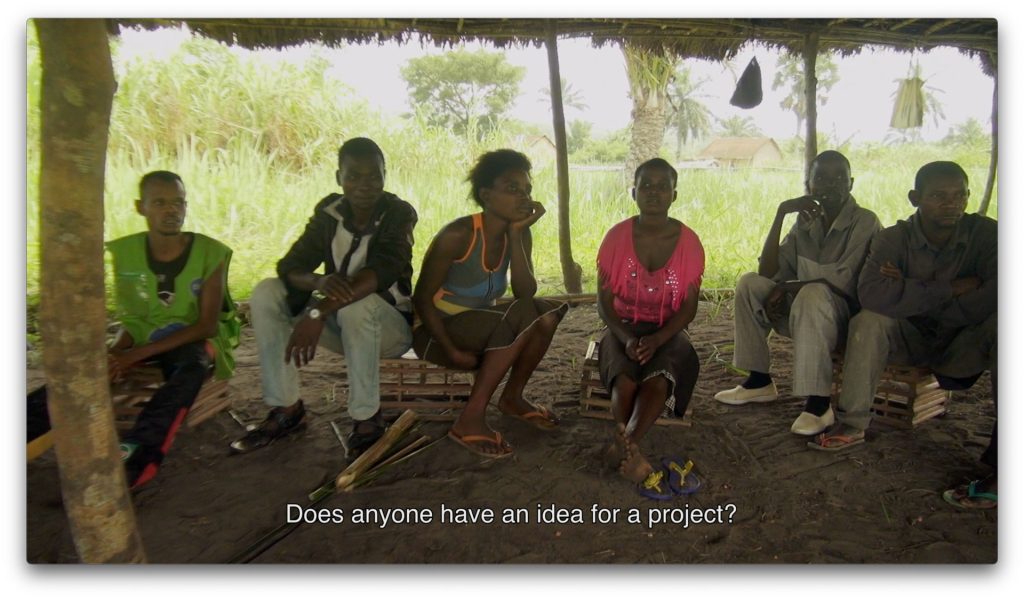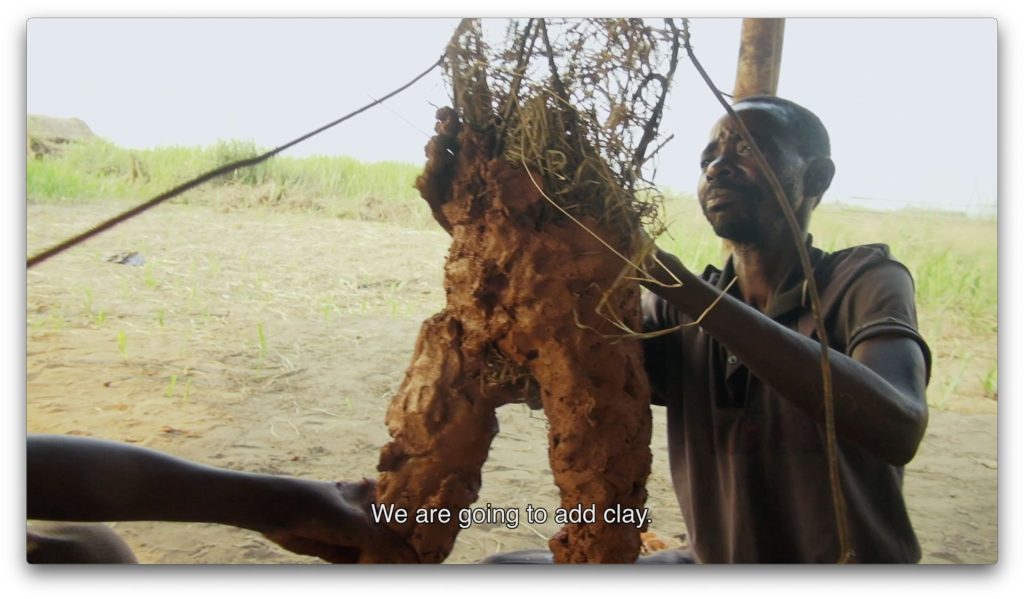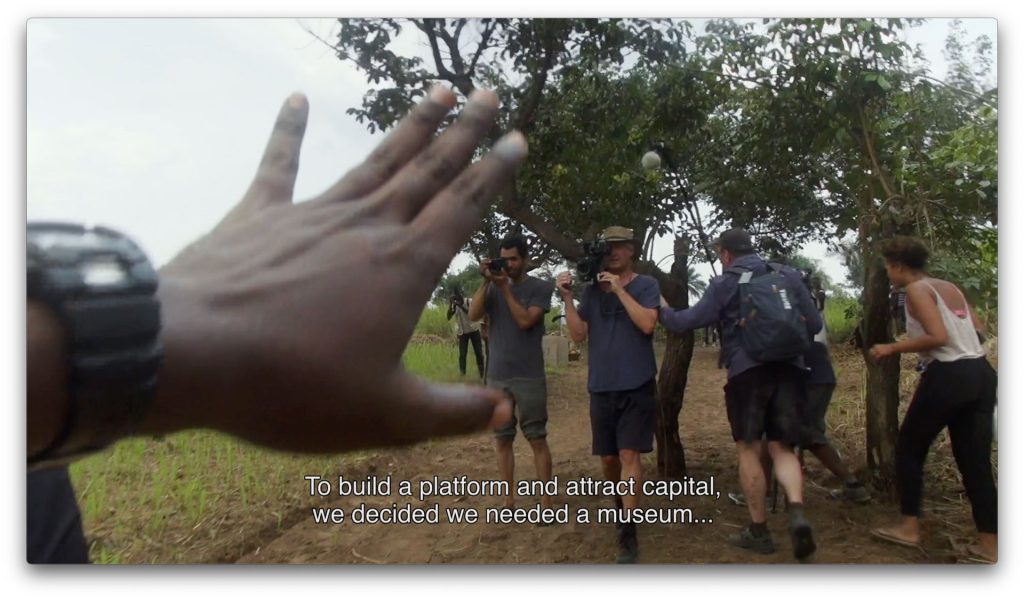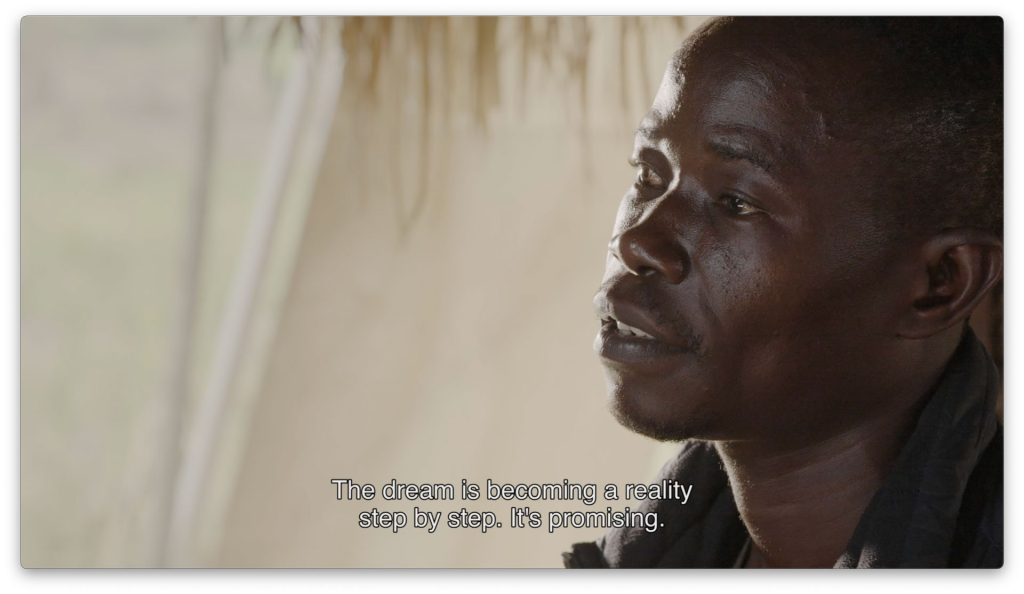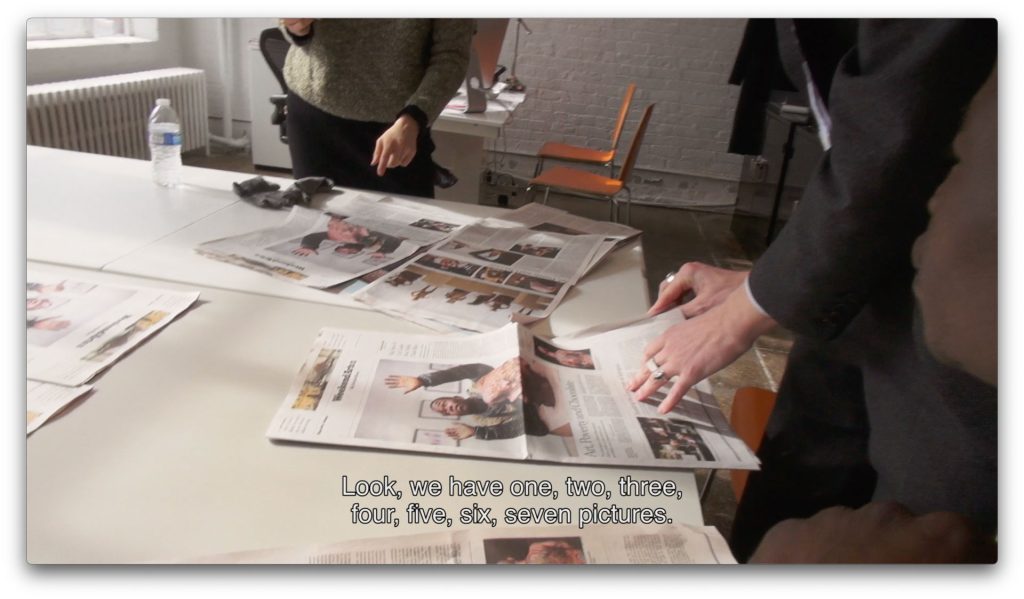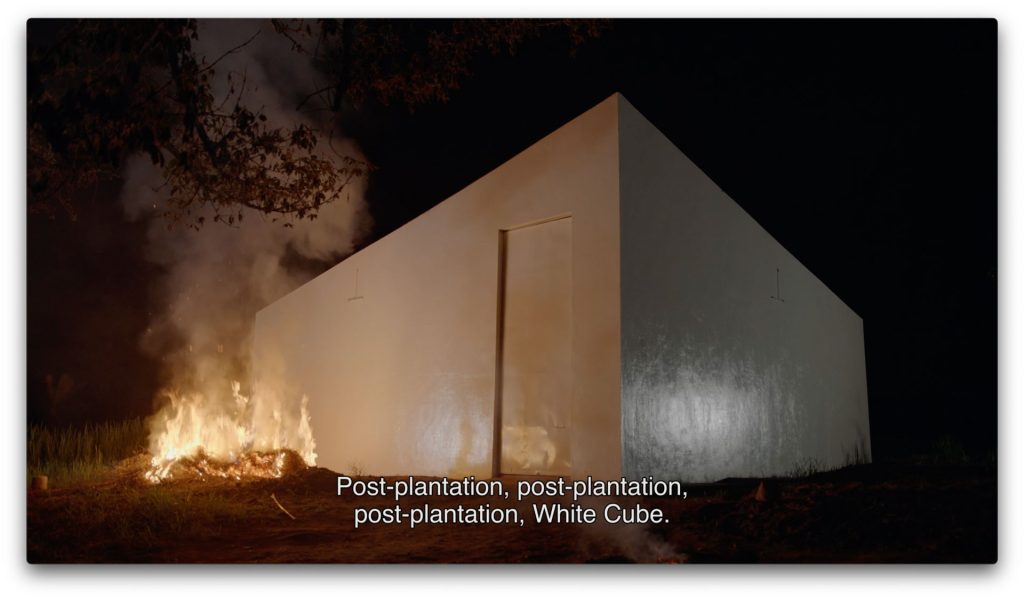directed by Renzo Martens
Case study by Jan De Coster
Thursday 13 June 2024
10:00—13:00
Summary
“White Cube” depicts the relationship between Western art museums and the violence of the plantation system. Many museums are built with profits extracted from plantations. In “White Cube,” Congolese plantation workers set a new precedent. They manage to use the concept of the ‘white cube’ to buy back their land from international plantation companies and secure it for future generations.
When Renzo Martens stepped out of the auditorium in 2010 after a screening of his film Enjoy Poverty (2008) at Tate Modern in London, his eye caught the many Unilever logos on the walls of the museum.
This observation would spark a project that eventually culminated in the film White Cube (2020), which examines the link between Western art museums and the violence of the plantation system.
Martens realized that Congolese plantations generate immense profits for distant investors in cities like London, with part of the financial gain reinvested into the arts. He notes, “Plantation workers have financed the museums and galleries where critique and dissent are formulated, yet they are not entitled to produce any form of poetry or singularity. These art centers are far removed from the plantation zones, and thus, the artistic critique they produce has little impact on the plantations themselves.”
In an effort to address this inequality, Martens started the Reverse Gentrification Program in 2012 at a former Unilever plantation. The idea was simple: if people can make a living from critiquing plantation labor, then plantation workers, who cannot survive on plantation wages, should be able to do the same. Martens invited former plantation workers to create self-representative clay sculptures, which were then cast in chocolate and exhibited worldwide. These workers, now artists, formed the Cercle d’Art des Travailleurs de Plantation Congolaise (CATPC).
White Cube continues the exploration started with Enjoy Poverty, but takes it further. Martens confronts the Western art world’s complicity in global inequalities, driven by his own moral conflict: “I have profited from inequality and poverty all my life.”
Yet both films offer a very different experience. Enjoy Poverty has something of an adventure film from the film-visit-as-expedition era. But the film positions the viewer as an omnipotent subject at the price of an unseen subjectification, in the sense of subjugation: the viewer has to identify primarily with the camera, and consequently with the main character, Renzo Martens, who behaves like a reprehensible Don Quichote.
White Cube, on the other hand, gradually lets go of this forced identification, offering the viewer more space to navigate the reality presented.
The specific form of the film, the shifting and shared perspective, the ellipses that guide us more through an idea than a physical reality, have the effect of making us feel more free but at the same time more distrustful of the imagery.
As a collaborator on both films, SIC-coach Jan De Coster sheds light on the making process of White Cube, and on the parameters that produce the different experience.
Practical Information
Date: Thursday 13 June 2024
Time: 10:00—13:00
Venue: GC Ten Weyngaert (rue des Alliés 54, 1190 Forest)
Tickets are free, on registration only (limited space)
If you would like to attend, please email us at soundimageculture@gmail.com
